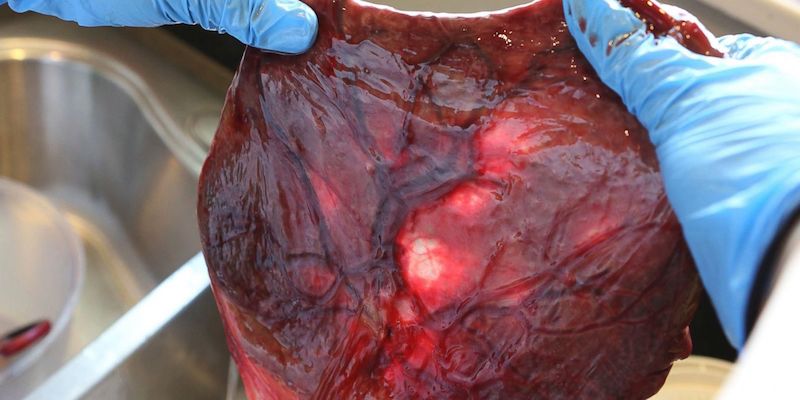The Centers for Disease Control and Prevention is warning new Mothers who think that eating their placenta after childbirth provides a slew of health benefits.
A new report has been issued warning that there are no standards for processing the organ for consumption and referred to a case study of an Oregon woman who seemed to have passed a dangerous infection to her newborn baby after she took contaminated pills ingesting her dehydrated placenta.
The baby developed group B Streptococcus agalactiae (GBS), which is an infection that can cause deadly respiratory problems in newborns. That baby was treated for the infection and recovered, but was admitted to another hospital just 5 days later, testing positive again for GBS. The infant was again treated and eventually discharged.
The mother confirmed that she registered with a company who came to pick up and encapsulate her placenta after the birth of her child. The mother and the company were not named in the CDC report.
The CDC noted it was possible that other family members could have passed along GBS to the baby, but testing showed GBS in the placenta samples that the mother provided. The report also noted that the placenta may not have been heated long enough to kill off any dangerous bacteria before it was encapsulated.
Ingesting placenta after birth has become popular in recent years with proponents swearing it helps to increase energy, milk production and staves of postpartum depression. Several celebrities have also praised the practice’s benefits but doctors have warned there’s no proof that eating placenta is advantageous.
“The placenta encapsulation process does not per se eradicate infectious pathogens; thus, placenta capsule ingestion should be avoided,” the CDC report concluded.
